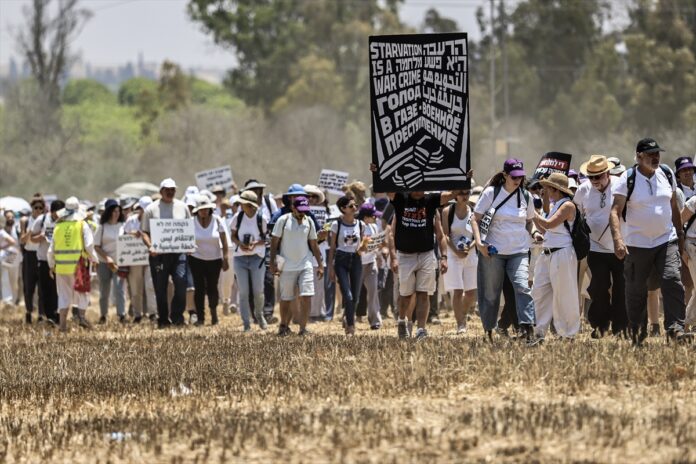Global Activists Rally for Gaza Humanitarian Access
A diverse coalition of pro-Palestinian demonstrators representing 31 countries is preparing to converge on Egypt’s Rafah border crossing. Their goal is to demand that humanitarian aid be allowed into Gaza, which has been under a severe blockade for months.

March Details and Objectives
The initiative, called the Global March to Gaza, is set to take place from June 12 to June 20. Beginning in Cairo, the movement intends to break the blockade by mobilizing peaceful, civilian-led protests backed by over 150 independent non-governmental organizations. Organizers stress that the campaign is not affiliated with any political party but is built upon universal ideals of justice, human dignity, and peace.
Dr. Huseyin Durmaz, a physician based in Türkiye with the International Health Initiative, explained that the international coalition was established by the participation of more than 150 organizations across 31 nations. “This march is our way of urging international institutions to fulfill their responsibilities,” he said.
Itinerary of the March
The march is scheduled to kick off on June 12 in Cairo, where various delegations will meet before moving toward al-Arish. On June 13, participants will start a 48-kilometer walk to Rafah, with large public rallies planned for June 14 and 15. Demonstrators have arranged to occupy tented encampments near the border until June 19. Although organizers anticipate an attendance of around 2,500 to 3,000 people, they emphasize that the event will remain peaceful and fully compliant with legal boundaries, with no efforts made to force entry through the border.

Official Stance and Diplomatic Communications
While permission from Egyptian authorities is still pending, organizers have confirmed that discussions are underway. Their aim is to collaborate with embassies, international NGOs, and humanitarian groups in order to secure a safe and continuous aid corridor.
Context: The Crisis in Gaza
The call for a humanitarian corridor coincides with escalating hardships in Gaza. Since early March, all crossings into the enclave have been shut by Israel—a decision that has led to widespread food scarcity and a collapsing healthcare system. Aid organizations report that many areas have become inaccessible, with critical supplies such as food and medicine unable to reach those most in need.
After a brief ceasefire, Israeli military operations resumed on March 18, resulting in significant casualties among Palestinian civilians. The situation has become increasingly dire, prompting global calls for a reassessment of border policies and humanitarian interventions.
The Message Behind the March
Organizers believe that the visible presence of thousands of peaceful demonstrators will help intensify international pressure on governments and agencies to act. They assert that the movement is not about monetary contributions but about generating moral pressure from the global community. Importantly, the campaign is self-financed by the participants, ensuring full transparency and independence in its operations.
The climax of the campaign is expected to be a massive rally on June 15 at Rafah, designed to broadcast the urgent need for humanitarian action to the wider world.
Challenges at the Rafah Crossing
Historically, both Egypt and Israel have imposed restrictions on the movement of goods and individuals in and out of Gaza. Since Hamas assumed control in 2007, Egypt has tightly regulated the Rafah crossing, often leaving it closed or enforcing strict limits. Currently, passage is granted only in exceptional cases—such as medical emergencies, students, or foreign nationals—and requires difficult-to-obtain permits. Under these conditions, the march aims to spotlight the urgent need for a secure, humanitarian lifeline into Gaza.

Embracing Faith, One Insight at a Time!
The teachings of the Quran have always guided my path. With a deep passion for Islamic knowledge, I strive to blend the wisdom of tradition with the relevance of today, making the timeless messages of Islam accessible and meaningful for everyone.
Muslim Culture Hub is my platform to share historical insights and thought-provoking articles, exploring both well-known and lesser-discussed aspects of Islamic culture and beliefs. My mission is to create an inclusive online space where everyone can learn, strengthen their faith, and connect with the profound message of Islam.
Join the journey!
May peace be upon you.







